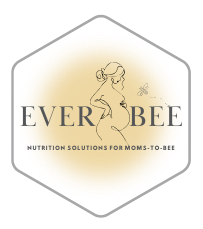Entering the world of motherhood can be an exciting and nerve-wracking experience, with ideas of what you should and what you shouldn’t be doing being tossed at you. I am here to help guide you through that journey with information to help you make the best decision for you. As you begin this new chapter, one crucial aspect to consider is postpartum recovery. The “5-5-5 rule postpartum recovery” has gained popularity as an easy guideline to help mothers prioritize their well-being during the initial weeks after childbirth. We will explore what the 5-5-5 rule is, why it’s essential, and how you can implement it effectively to support your postpartum recovery.
What is the 5-5-5 Rule Postpartum?
The 5-5-5 rule postpartum as mentioned before is a set of guidelines to help new mothers focus on rest and recovery during the first 15 days after giving birth. The rule breaks down into three distinct phases:
- First 5 Days: In the Bed
- Next 5 Days: On the Bed
- Last 5 Days: Around the Bed
This approach focuses on the importance of slowly increasing your activity level and allowing your body the time it needs to heal. We will focus on each set of rules and discuss how to do it and why it’s important.
The First 5 Days: In the Bed
Why Rest is Crucial
Within the first five days of the postpartum period, we want to really focus on taking our time and really using this time on skin-to-skin with baby. Childbirth is a very physically demanding task that our bodies go through and oftentimes gets brushed off because women do it daily. However, this is a time for recovery where we have to be mindful of the physical changes that have occurred not only in the last 9 months but also within the childbirth experience. Your body is in a state of recovery, having undergone significant physical changes and exertion. Despite the type of birth you had, your body needs time to heal from the process. During this initial phase, resting in bed as much as possible can help:
- Promote Healing: After running a marathon, the body needs time to rest and recoup to heal up. Childbirth is no different; you need to take your time to gain back your strength and bank that energy for caring for your family.
- Prevent Complications: Minimizing movement can help to reduce the risk of complications such as heavy bleeding. For mamas who had C-sections, this can help to minimize the pain and really allow you to focus on your body.
- Bonding with Baby: Skin-to-skin contact is the best form of bonding with baby, the benefits are so crucial for baby’s development. Remember not to allow baby to sleep on the bed while you are sleeping, baby sleeping in the room in their own safe area is recommended.
Practical Tips for Resting In the Bed
Make sure your bed is comfortable and supportive. Try to have all sheets cleaned prior to getting back home with baby. Use plenty of pillows, keep using that pregnancy pillow and have your boppy nearby for support of your body and support while breastfeeding. Having everything you need within arm’s reach will help minimize the need to get out of bed. Items such as water, snacks, diapers, and breastfeeding supplies are just some ideas of what to have near you. Making a portable baby essential basket is a great mom hack to keep those essentials nearby. ASK FOR HELP WHEN YOU NEED IT. Use your partner, family members, or friends for help with household chores, meal preparation, and help caring for older children. It takes a village to raise a baby, support will only help you to get more time to bond with baby. While it’s tempting to have visitors, try to limit them during these first few days to give yourself the rest you need and allow this time to bond with baby as much as possible.

Next 5 Days: On the Bed
After the first five days of resting in bed, the next phase involves spending more time on the bed. This means you can start to sit up more frequently and start some light activities, but you should still prioritize rest and listen to your body.
Benefits of Gradual Movement
Gentle movement helps improve blood circulation, which is important for preventing blood clots and promoting healing. Five days in bed can be tough for anyone, it’s not fun and your muscles can feel stiff after being in bed for so long. Engaging in light activities is a great way to get your body back to feeling normal and just mentally feeling better. Engaging in activities like light stretches while sitting on the bed is a great way to get your body moving. Throughout all stages of postpartum recovery, it is important to listen to your body and call your doctor when anything feels off. Always! Consult your healthcare provider about gentle postpartum exercises you can start during this phase.
Last 5 Days: Around the Bed
The final phase of the 5-5-5 rule involves spending time around the bed. This means you can start to move around more freely and gradually resume some of your regular activities, but you should still avoid overexertion.
Benefits of Increased Activity
Gradually increasing your activity level helps strengthen your muscles and improve your physical endurance. Light movement and activities can help increase your energy levels and reduce feelings of fatigue. Getting back to some of your usual routines can improve your mood and sense of normalcy. During this phase, having someone at home before venturing off the bed for these activities is suggested just incase anything were to go wrong.
Practical Tips for Moving Around the Bed
- Short Walks: Take short walks around your home, but avoid heavy lifting or strenuous activities.
- Listen to Your Body: Pay attention to how your body feels and take breaks if you experience any discomfort or fatigue.
- Continue Seeking Support: Keep relying on your support network for help with household tasks and baby care as needed.
- The Importance of Postpartum Care
The 5-5-5 rule postpartum is more than just a set of guidelines; it’s a holistic approach to postpartum care that acknowledges the physical, emotional, and mental needs of new mothers. Let’s explore why postpartum care is so crucial and how the 5-5-5 rule postpartum fits into this broader context.
Physical Recovery
Regardless of the type of childbirth, it places significant strain on your body. Postpartum care helps your body by making sure it has the time and resources it needs to heal. Your uterus needs time to contract and return to its pre-pregnancy size. If you had a vaginal delivery, your perineal area needs time to heal from any tears or episiotomy. If you had a cesarean section, your incision site needs time to heal and should be monitored for signs of infection.
Emotional and Mental Well-being

The postpartum period can be emotionally challenging due to hormonal fluctuations, sleep deprivation, and the demands of caring for a newborn. The 5-5-5 rule postpartum encourages rest and gradual activity, which can help manage your mental well-being. Taking the time to rest and seek support can reduce the risk of postpartum depression and anxiety. Prioritizing self-care and setting realistic expectations can help reduce stress and promote a positive postpartum experience.
Bonding with Your Baby

The early days after childbirth are a crucial time for bonding with your baby. Skin-to-skin contact, breastfeeding, and simply spending time together help build a strong emotional connection. The 5-5-5 rule supports this by allowing you to focus on your baby without the distractions of household chores or other responsibilities.
Communicate with Your Healthcare Provider
Before you give birth, discuss the 5-5-5 rule with your healthcare provider. They can provide personalized advice based on your health, the type of delivery you have, and any specific concerns you may have. After childbirth, keep your provider informed about your recovery and any issues you encounter. Read more about concerns and issues regarding postpartum care here: https://www.ncbi.nlm.nih.gov/books/NBK565875/
Build a Support Network
Having a strong support network is essential for a successful postpartum recovery. This includes your partner, family members, friends, and even postpartum doulas. Don’t hesitate to ask for help and delegate tasks so you can focus on your recovery and your baby.
Plan Ahead
Prepare for your postpartum period before your baby arrives. Stock up on essentials, prepare freezer meals, and create a list of tasks that others can help with. Planning ahead can reduce stress and allow you to follow the 5-5-5 rule more easily.
Listen to Your Body
Every woman’s postpartum recovery is different. Listen to your body and adjust the 5-5-5 rule as needed. If you feel that you need more rest, take it. If you feel ready to move around earlier, do so gradually and with caution.
Focus on Self-Care
Self-care is an essential aspect of postpartum recovery. This includes physical self-care, such as eating nutritious meals and staying hydrated, as well as emotional self-care, such as taking time for activities you enjoy and seeking support when needed.
Be Patient and Kind to Yourself
Postpartum recovery takes time, and it’s important to be patient and kind to yourself during this period. Celebrate small victories and acknowledge the incredible work your body has done. Remember that it’s okay to ask for help and that taking care of yourself is essential for taking care of your baby.
Conclusion
The 5-5-5 rule postpartum is a valuable guideline for new mothers navigating the early weeks after childbirth. By prioritizing rest and gradually increasing activity levels, this rule supports physical healing, emotional well-being, and bonding with your baby. While every mother’s postpartum journey is unique, the principles of the 5-5-5 rule can be adapted to fit individual needs and circumstances.
Remember, the postpartum period is a time for recovery and adjustment. By implementing the 5-5-5 rule postpartum and focusing on self-care, you can ensure a smoother and healthier transition into motherhood. As you embrace this new chapter, give yourself the time, support, and compassion you deserve. Your well-being is just as important as your baby’s, and taking care of yourself is the first step towards a fulfilling and joyful postpartum experience. Check out more information on postpartum health and wellness at http://everbeenu.com
